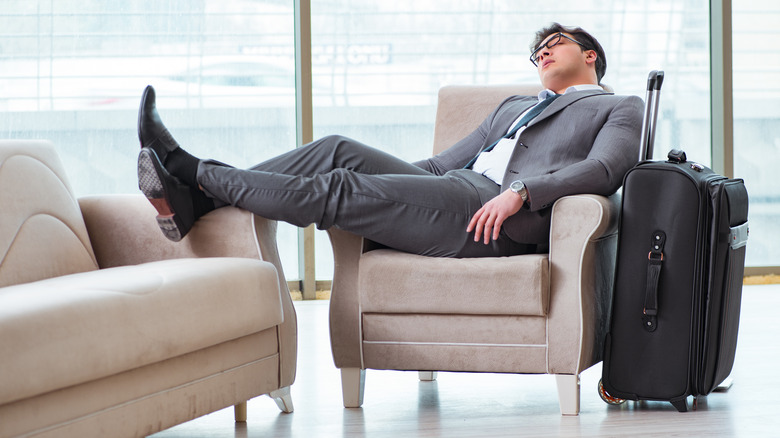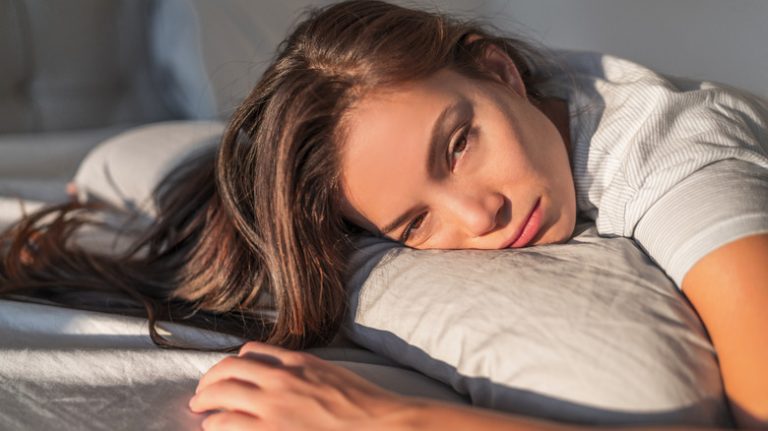It’s pretty safe to say that many people are not a fan of jet lag. While jet lag is a temporary sleep problem, it may cause different symptoms that vary depending on how far you travel. Some of these symptoms include disrupted sleep, daytime fatigue, gastrointestinal problems, insomnia, difficulty concentrating, and more (via Mayo Clinic). It can also cause lack of appetite and mood swings, points out Healthline.
Jet lag happens when a person’s circadian rhythm (which controls the sleep-wake cycle) gets disrupted after crossing time zones, according to the Mayo Clinic. This disruption then puts a person’s body out of sync with the new time zone they’re now residing in.
While jet lag is a common occurrence, many people may wonder if there are ways to lessen the transition time. One 2024 review explains that local light exposure and melatonin (which is naturally brought on by darkness) may help reduce the effects of jet lag.
But can exercise help with jet lag? Research published in the Journal of Physiology sought to answer this question, and found that exercise has circadian phase-shifting properties.
The timing of your exercise plays a big role

To answer the question of whether exercise can help with jet lag, these researchers studied the effects of exercise on the circadian rhythms of 101 healthy, active adults (per Journal of Physiology). Out of the 101 participants, 48 adults were between the ages of 18 and 32 years, while the other 53 adults were 59 to 75 years old.
During the study, the researchers asked the participants to perform a moderate treadmill exercise for 1 hour for 3 consecutive days (via Journal of Physiology). Each participant was asked to perform this workout during one of eight different times of day or night.
The researchers assessed the participants’ moods and collected urine samples to determine the circadian rhythms, shares Journal of Physiology. The researchers analyzed the participants’ melatonin levels, points out Medical News Today.
What the scientists found is that morning exercise at 7 a.m., or afternoon exercise between 1 p.m and 4 p.m. can shift the body’s natural rhythm to an earlier time (per Medical News Today). Alternatively, evening workouts between 7 p.m and 10 p.m. can cause delays and move circadian rhythms back.
The researchers explained that there were no significant effects due to age and sex, but added that more research is needed (per Journal of Physiology).




